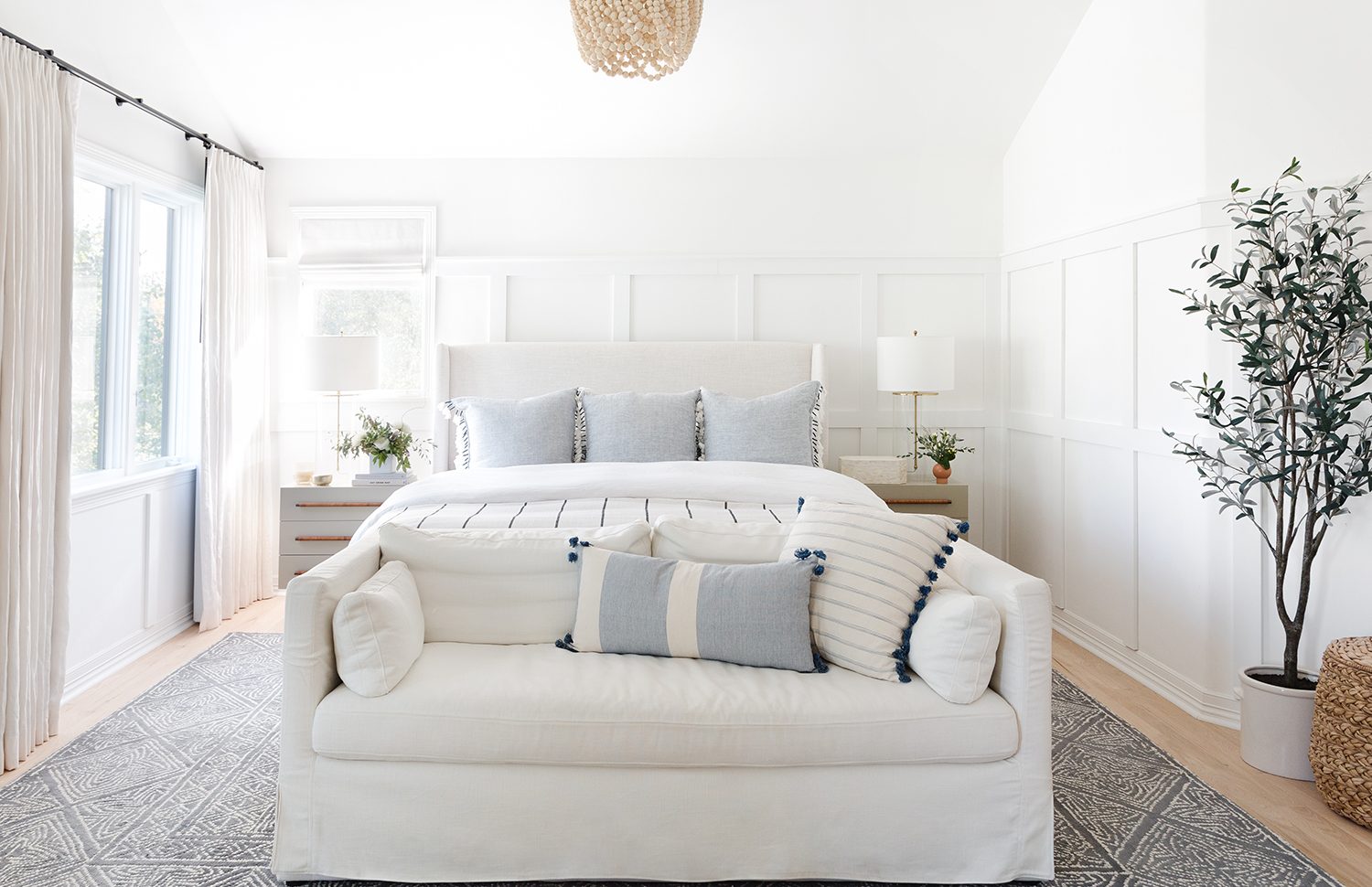A quick Google search will tell you that Feng Shui is an ancient Chinese philosophy that helps people find harmony in their surroundings. And while this certainly rings true in the design world, we like to lean into feng shui for a layer of intuitive functionality, too.
This “mindfulness for spaces,” as Feng Shui expert and architect Anjie Cho puts it, is especially important in bedrooms. “We spend so much time in our bedrooms,” she tells Havenly. “Sleep is when we heal and regenerate – everything around you affects you while you’re sleeping.”

In other words, your bedroom layout is so much more than aesthetics (though we’d argue those are pretty important, too). Cho goes as far as saying that the placement of your furniture and decor can affect your sleep, mood, and overall well-being. “There are spaces that can support and nourish us, or spaces that create obstacles, stress, and challenges,” she says. “So we really want to be mindful of our environment and create ease in places like your bedroom.”
So, how exactly do you create a supportive, nourishing bedroom layout? Cho shares her best eleven tips for a top-notch Feng Shui bedroom below:
1. Situate the bed in a commanding position
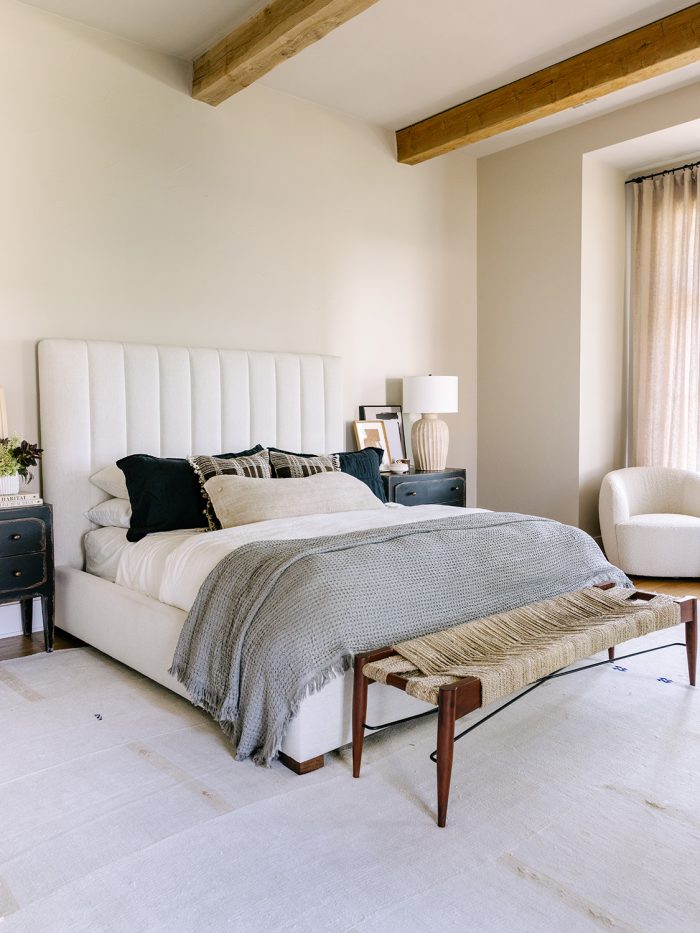
If you can only do one thing to embrace feng shui in your bedroom, Cho recommends placing your bed in a commanding position. “Ideally, you want your bed located diagonally from the door,” she instructs. The goal is to have an unobstructed perspective of everything happening in the room. This so-called “commanding position” is supposed to help you ward off unnecessary stress while sleeping. “You want to minimize the potential for surprise, which activates your fight-or-flight response,” she reasons. While you may consciously know that your bedroom is safe, she contends that Feng Shui is more instinctual and intuitive than anything else.
2. Clear under-the-bed clutter
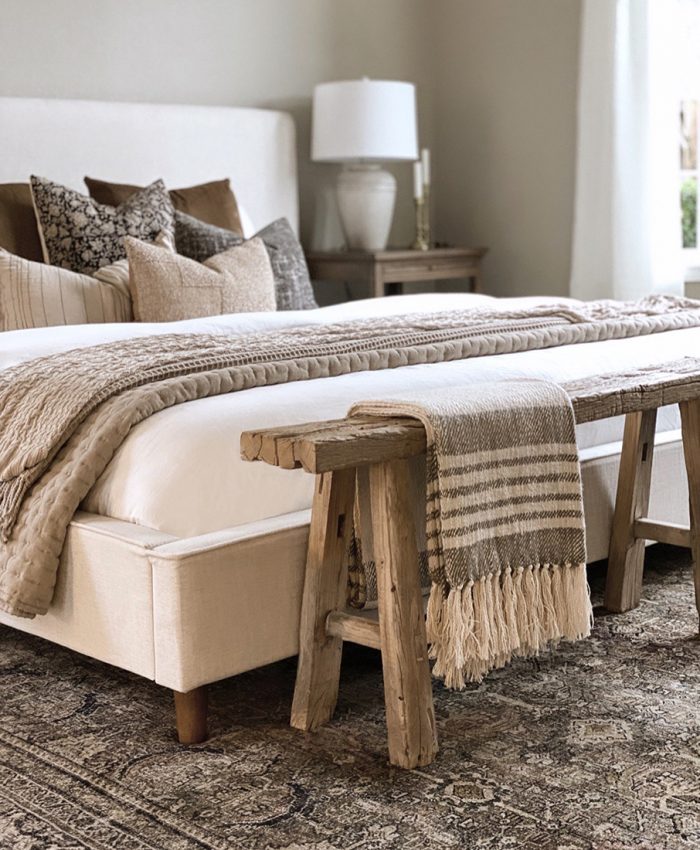
While city-dwellers and renters may have no choice but to take advantage of under-the-bed storage, Cho advises against it from a Feng Shui perspective. “You want to have clear and open space underneath you while you’re sleeping,” she explains. To that end, platform beds or any frame that goes all the way to the floor is another no-no. “You want to cultivate qi, or life force energy, all around you while you sleep.”
If you absolutely have to utilize under-the-bed storage, Cho suggests carefully curating what you put there. “You want to avoid having anything emotionally charged,” she insists, adding that they can interfere with your sleep. So if you’re one to stash mementos from your exes or childhood nostalgia beneath your bed, consider this invitation to swap them in favor of bed-related items, like pillows and linens, which are deemed more conducive to sleep.
3. Invest in a big bed
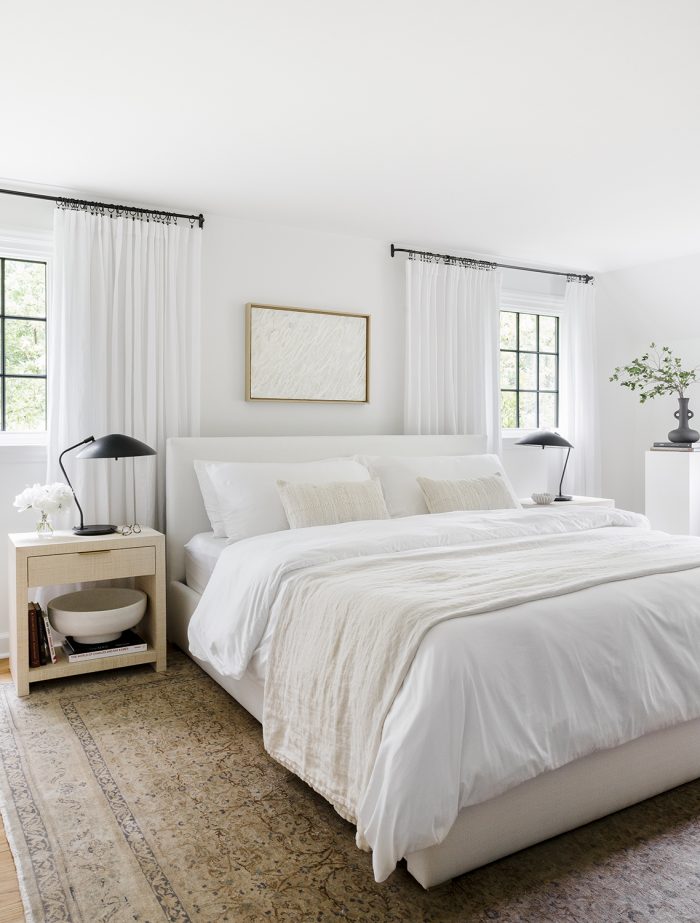
When it comes to mattress size, try your best to make space for what you want. Cho recommends buying at least a full mattress, but a queen or king is even better if you have the room. “You want a bed that’s larger than a single or a twin — unless you really don’t want a relationship,” she declares. “In Feng Shui, this says that there’s no room for your partner.”
4. Make space on either side of the bed
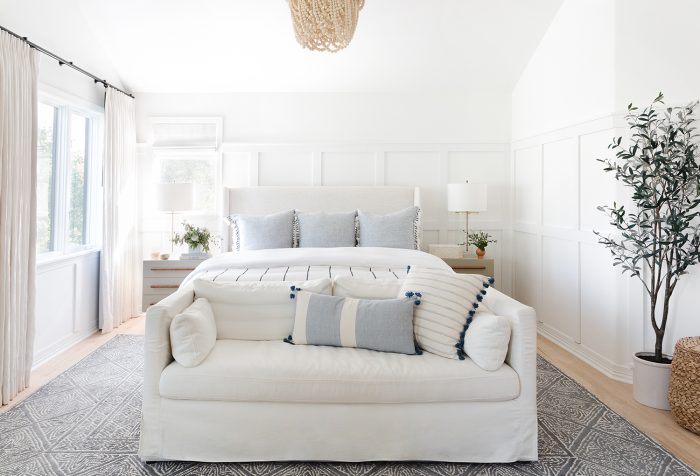
On a similar note, Cho (and Havenly designers) recommends making equal space on both sides of the bed. “A lot of people push their bed up against the wall or into a corner, and that creates an energy imbalance,” she details. “The partner that sleeps against the wall is not as comfortable as the one who’s on the open side.”
5. Install a headboard
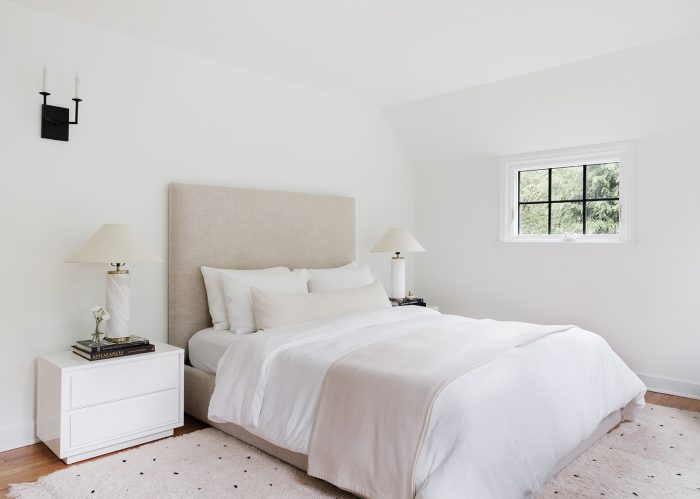
Headboards aren’t just for decoration. According to Cho, this simple piece represents stability, and we’d have to agree. “You want a headboard that’s securely fastened to the bed, and pushed up against the wall,” she adds. “I know that sounds like a no-brainer, but I’ve seen people who just put the bed in the middle of the room.”
6. Layer a rug under the bed
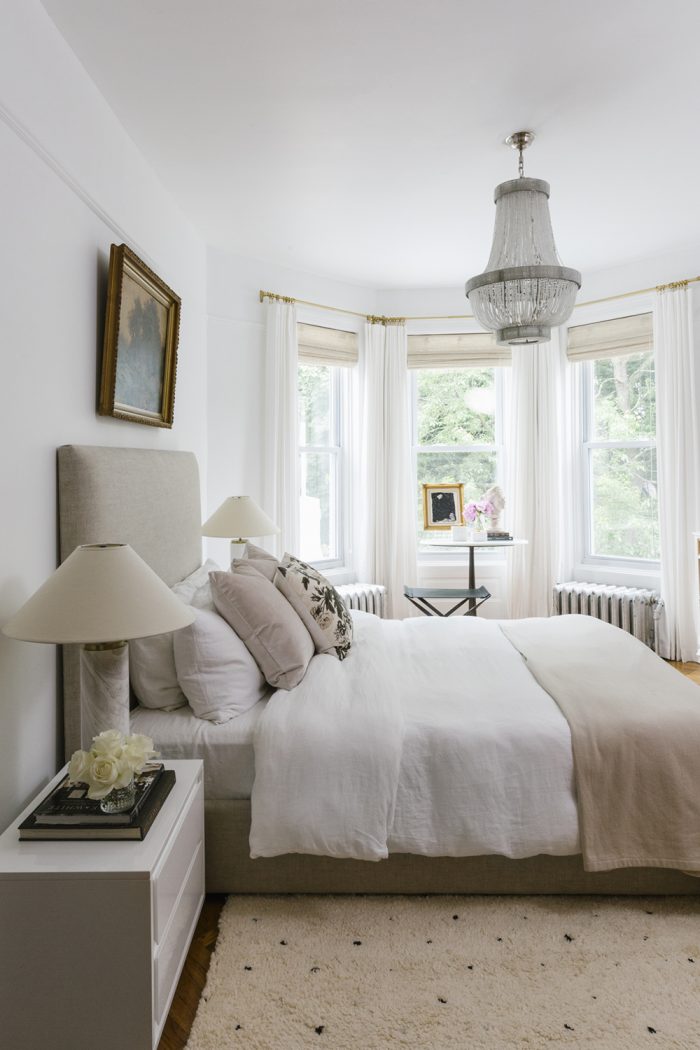
If you ever feel a bit unstable and rootless in life (a two-year global pandemic will do that to you), Cho suggests layering a rug underneath your bed. “Bringing in any kind of rectangular rug will connect you with the earth,” she explains. “It also adds visceral texture beneath your feet, which can help you feel more grounded and stable.
7. Pay attention to symmetry
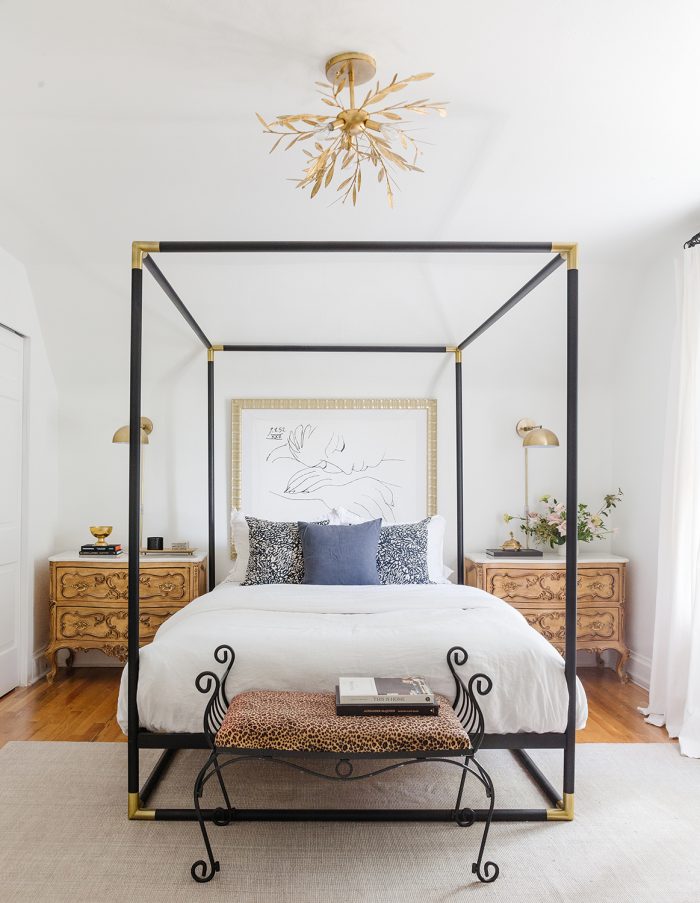
Cho doesn’t endorse precise, picture-perfect symmetry, but it’s a principle worth following to a certain extent. “From the Asian perspective, asymmetry is really interesting, but for the bedroom, you ideally want a nightstand and a lamp on both sides of the bed,” she notes. “They don’t have to be perfectly matchy-matchy, but you do want them to be similar in size and scale.”
8. Save bookcases for the home office
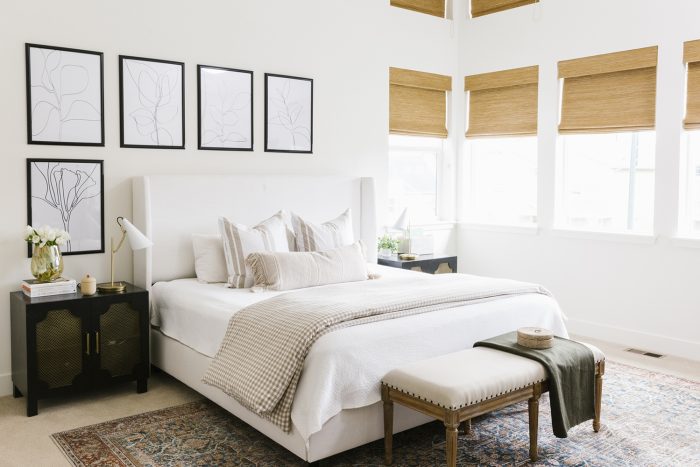
While books can represent knowledge and wisdom, Cho feels that bookcases bring too much information into the bedroom. “Thanks to our phones, we’re completely inundated with information at all times,” she says. “And having a bookcase in your bedroom invites even more mental activity and stimulation. This is an especially important consideration if you have trouble sleeping or suffer from bedtime anxiety.” So while we fully support cozying up with a great book at bedtime, perhaps keep additional on-deck reads out of sight and off the mind.
9. Stick to a calming palette
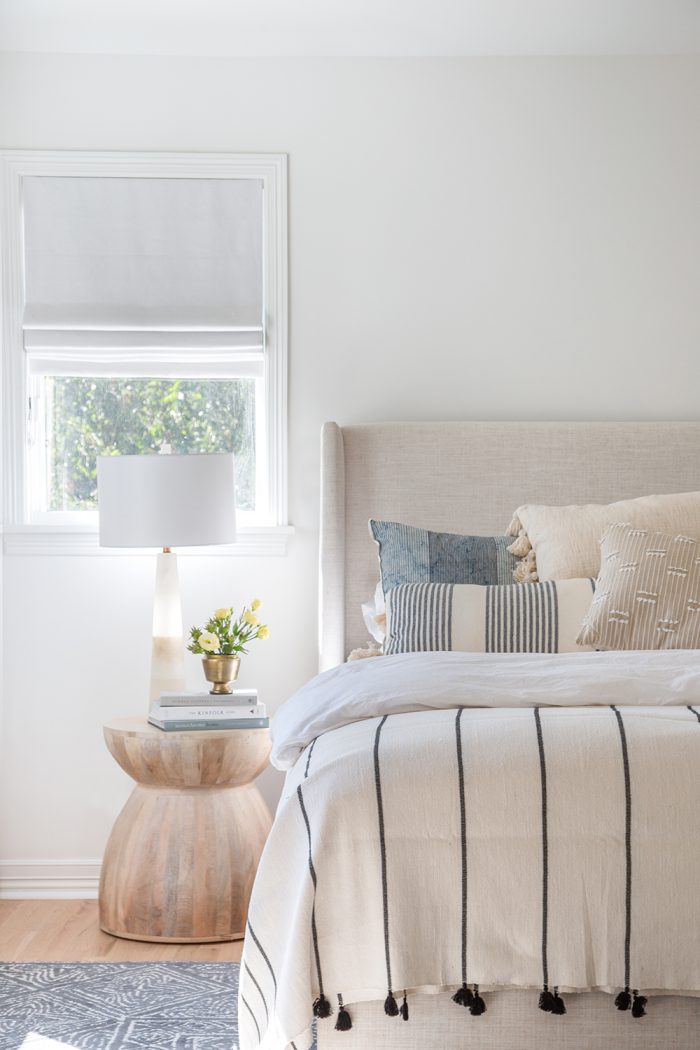
It’s not necessary to limit your palette to exclusively neutrals, but Cho does support the use of softer, calming hues. “I recommend avoiding bright colors in the bedroom because they’re just too stimulating,” she explains. “If you do like bright colors, use them in very, very small doses. In general, neutrals and lighter-toned greens and blues are very healing.”
10. Incorporate small plants
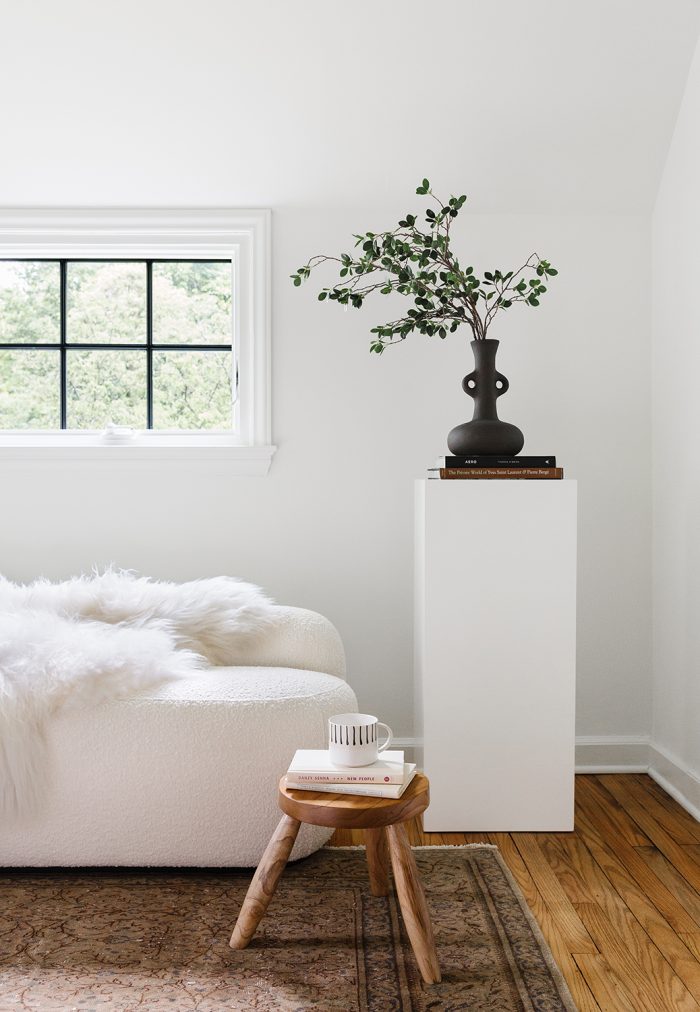
Much like with mirrors, some schools of Feng Shui warn against potted plants in the bedroom. Cho, on the other hand, thinks flora can be beneficial in your sleeping quarters. “There are even plants that promote air purification and create more oxygen. Most importantly, plants can bring kindness and growth to your bedroom.”
From Feng Shui bedrooms to perfecting room flow, our designers are chock-full of expert tips. Check out our design packages to work with a design pro one-on-one.

